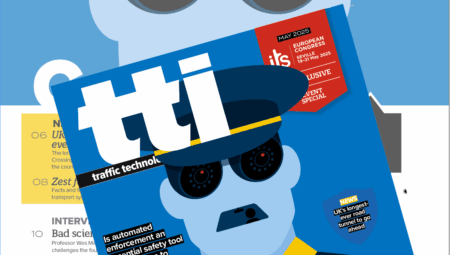A new European Union-funded project has been unveiled in France, which aims to enable safer highly automated driving by making use of smart and connected objects and the Internet of Things (IoT).
Over 100 stakeholders met in Versailles, France, for the public launch of the new European Autopilot project, with the audience representing a variety of mobility stakeholders, including public authorities, industry, service providers, users and research institutes. Financed by the European Union’s (EU) Horizon 2020 research and innovation program, the Autopilot project will see IoT-enabled automated vehicles deployed at six pilot tests sites in France, Finland, Korea, Spain, Italy, and the Netherlands. The pilot sites will generate data to evaluate the technical performance of the IoT to allow safer highly automated driving, as well as to assess the socio-economic impacts of the new technology.
The three-year Autopilot project will develop new services on top of IoT to involve autonomous driving vehicles, such as autonomous car sharing, automated parking, or enhanced digital dynamic maps to allow fully autonomous driving. Autopilot’s IoT-enabled autonomous driving cars will be tested, in real-world conditions, at four permanent large scale pilot sites in Finland, France, Netherlands and Italy, whose test results will allow multi-criteria evaluations of the IoT’s impact on pushing the level of autonomous driving, including technical, user, business, and legal issues.
The 43 partners of the Autopilot project’s consortium represent information and communication technology stakeholders, as well as the automobile industry and research organizations. In the regions selected, they will test automated vehicles using ‘smart’ objects under real-life conditions, in order to evaluate the benefit on technology, the economy, and people. Led by ERTICO-ITS Europe, the project’s consortium includes Continental, Fiat Peugeot Citroen, Huawei Technologies, IBM, NEC Europe, NXP Semiconductors, STMicroelectronics, Thales, TomTom, and Valeo, as well as the ETRI, FIA, and UITP organizations. The Autopilot project’s launch was hosted by the French pilot site in Versailles, allowed the project’s partners and attendees to discover the pilot site in depth, as well as give local stakeholders the opportunity to learn about the Autopilot project’s objectives.
“We are excited to start such a large scale activity with representatives from all major stakeholder groups to prove that automation in urban environments can become a reality, thanks to the Internet of Things,” said Francois Fischer, the Autopilot coordinator and senior manager at ERTICO-ITS Europe. “We are looking forward to working together with the five other IoT large scale pilots (LSPs) financed by the European Union, being part of the same IOT project call.”
Thomas Bonhoure, head of urban and economic development for the Versailles Grand Parc region, commented, “Versailles is associated with culture, and we hope with Autopilot to also have our city associated with innovation.”




